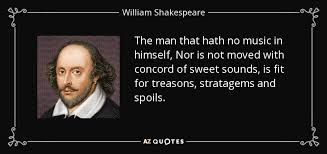CONCORD OF SWEET SOUNDS FROM RECORDER AND PIANO

Concord Of Sweet Sounds
JILL KEMP (Recorder) & ALEXANDER ZRAM (Piano)
extrapolated from Rochdale Music Society Archives
by Rosa Marie Staves
This concert was a fascinating eye-and-ear-opener to an audience whose members may well have gathered not knowing quite what to expect! Recorder music tends to be regarded as suitable mainly or even exclusively for school children performing and listening at a very early stage in the development of their musical appreciation.
What mistake it is to think that way!
As the Sonatas by Telemann, Bach and Handel in this concert amply demonstrated, music written for the recorder family before the advent of the modern transverse flute was never all that easy to play or simple to appreciate. Very considerable technical agility is needed to address them properly and produce satisfying results.

That Jill Kemp (right) is fully equipped for this task was made quite clear by the clarity and brilliance she achieved in some of their fiendishly challenging fast passages. The continuo part was discreetly and punctiliously played throughout by Aleksander Zram, who somehow managed to give the distinct impression that there was also a stringed bass underlining the bass sonority. (This was a lovely effect.).
The earliest music in this wide-ranging programme was a set of Variations for the solo descant recorder by a little-known Dutch composer, Jacob van Eyck. We were transported by Jill’s performance to the riverside in seventeenth century Utrecht, where the composer would wander about improvising such fancies to the wonder of whoever happened to be around! A delightful excursion.
The latest music in the concert was a novelty work by David Bedford (d. 2011), one of his last compositions and written specially for Jill Kemp. This was a set of quirky variations on the well-known Kemptown Races tune. Jill brought the first half of the concert to a rousing conclusion with an impeccably executed performance full of poise and good humour.
Two other ‘modern’ works were featured in the concert. In the first half, the Sonata Op. 121 by York Bowen provided the audience with an excellent example of mid-twentieth century music for the recorder conceived with lyrical and dramatic power. In the second half, the Aztec Dances by Edward Gregson, formerly Principal of the Royal Northern College of Music and present in the auditorium, provided us with some extraordinarily imaginative and unexpected sounds made by both recorder player and pianist. This tour de force for any recorder player was executed with finesse and aplomb, and proved to be the most substantial of the works in the programme, leaving the audience entranced.
Not much music was written for the recorder during the nineteenth century. The Variations Brillantes of E. Krähmer are among the few substantial works still played. They gave both Jill and Alexander opportunity to show their dexterity and good humour, which was well appreciated by those who watched and listened. So did the arrangement Jill had made of Sarasate’s Gipsy Airs – originally a showpiece for violin and orchestra – with which she rounded off a thoroughly entertaining and artistically enlivening evening’s music-making.



Leave a Reply
Want to join the discussion?Feel free to contribute!